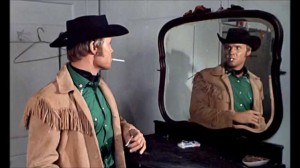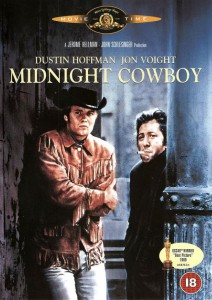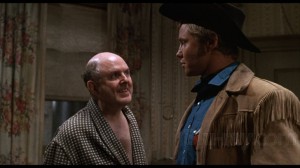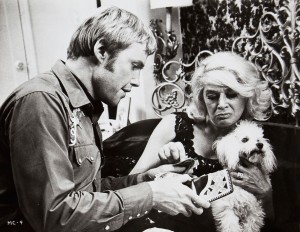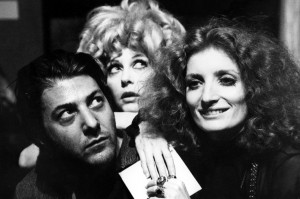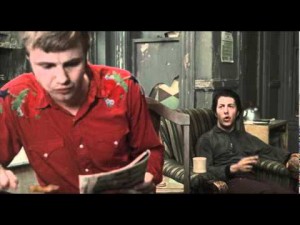Written for the Il Cinema Ritrovato catalogue for June 2018, although they wound up not using this entry because the film got canceled. — J.R.
An expert piece of machinery highlighting two gifted actors — Jon Voight in his screen debut and Dustin Hoffman in the immediate aftermath of The Graduate, playing an antithetical role as a crippled street rodent named “Ratso” — Midnight Cowboy actually looks better to me now than it did in 1969. Even back then, I was impressed by the jubilant energy of the film’s opening: our introduction to Voight’s Joe Buck, the title hero, to the strains of Nilsson’s “Everybody’s Talkin’” was every bit as galvanizing as our first look at John Travolta’s Tony Manero would be eight years later in Saturday Night Fever, strutting to his own music. And much of what followed, after this Texan dishwasher boarded a bus for New York with dreams of becoming a first-class gigolo, impressed me with its deft storytelling and its eye for flavorsome detail. But English director John Schlesinger, in spite of his skill with actors, was designated as a bad object by Anglo-American auteurists such as myself — crassly derivative of the French New Wave in his flashy effects and a tireless trend-monger. And some of my gay and bisexual friends objected to the ways in which this touching asexual/heterosexual love story between two failed street hustlers harped too much on the alleged shame of being homosexual.
I wouldn’t call these misgivings entirely unwarranted. Many of the flashbacks to Joe’s Texas past seem needlessly muddled, and the party sequence featuring Warhol Superstars and chic psychedelic lightshows that Joe and Ratso improbably attend, which even sympathetic reviewers objected to in 1969, still looks opportunistic. But Schlesinger’s mosaics of imagined flash-forwards and idle daydreams mixed in with his outsider’s sidelong glimpses of American landscapes and cityscapes are handled with real verve and fluidity, and even some of the druggy effects at the party are handled with some grace and wit, capturing the 60s zeitgeist much more accurately than The Graduate. And as a tragicomic duo, Voight and Hoffman are often as memorable as Laurel and Hardy.

